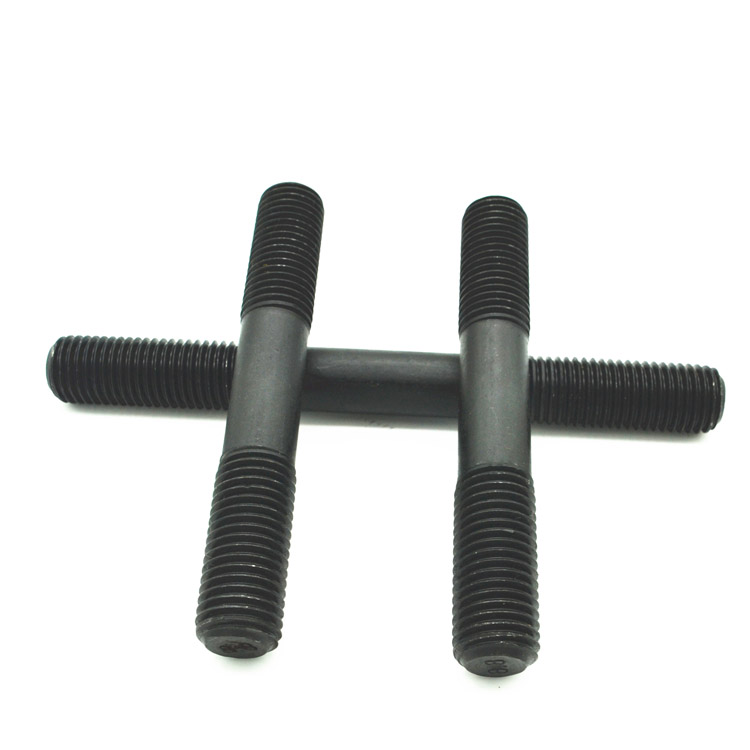guardrail bolts exporter
Nov . 19, 2024 12:54 Back to list
guardrail bolts exporter
The Role of Guardrail Bolts Exporters in Global Road Safety
In the ever-evolving landscape of transportation infrastructure, the importance of safety cannot be overstated. One critical element that contributes to road safety are guardrails, which are designed to mitigate the risk of vehicles veering off the road and provide a protective barrier for both drivers and pedestrians. However, the effectiveness of these guardrails hinges not just on their design and materials but also on the quality of the components that hold them in place—particularly guardrail bolts. This article explores the role of guardrail bolts exporters, their significance in the global marketplace, and the vital impact they have on public safety.
Understanding Guardrail Bolts
Guardrail bolts are specialized fasteners used to secure guardrails to their support posts and structures. These bolts must meet strict engineering standards and specifications in terms of strength, durability, and resistance to weathering and corrosion. The need for reliable and high-quality fasteners has led to a growing demand, making the role of exporters in this niche supply chain increasingly crucial.
The Global Market for Guardrail Bolts
The burgeoning infrastructure projects across the globe—especially in developing nations—have amplified the demand for guardrail systems and, consequently, guardrail bolts. Exporters play a pivotal role in this market by connecting manufacturers from countries renowned for quality production with international buyers who prioritize safety and compliance with industry standards. Countries like China, India, and the United States are notable players in the guardrail bolts export market, leveraging their advanced manufacturing techniques and ability to meet large orders.
Quality Standards and Certifications
One of the key responsibilities of guardrail bolts exporters is ensuring that their products conform to rigorous international quality standards. These standards may include compliance with ASTM International standards, ISO certifications, and local regulatory requirements. Exporters often collaborate closely with manufacturers to ensure that every batch of bolts undergoes thorough testing for tensile strength, yield strength, and corrosion resistance. In doing so, they help maintain the integrity of safety systems worldwide.
guardrail bolts exporter

Environmental Considerations
Today's consumers are increasingly conscious of the environmental impact of their purchases. Exporters of guardrail bolts are adapting by sourcing materials responsibly and considering sustainability in their manufacturing processes. For instance, many manufacturers are exploring innovative methods to recycle materials or reduce the carbon footprint of their production processes. This willingness to embrace sustainability not only helps protect the environment but also positions exporters favorably in a market that is increasingly valuing corporate social responsibility.
The Role of Technology in Exporting
Technological advancements are revolutionizing the exportation process of guardrail bolts. From sophisticated logistics management systems that streamline shipping processes to advanced quality inspection techniques that ensure products meet international standards, technology plays a crucial role in enhancing efficiency and reliability. Moreover, the use of digital platforms to facilitate communication between exporters and their clients allows for better negotiation and information exchange, ultimately leading to improved customer satisfaction.
Challenges Facing Exporters
While the prospects for guardrail bolts exporters are promising, they are not without challenges. Fluctuating raw material prices, stringent regulatory requirements, and trade tariffs can significantly impact profitability. Additionally, exporters must remain agile in responding to rapidly changing market demands, often necessitating quick adjustments in production and distribution strategies.
Conclusion
Guardrail bolts exporters significantly contribute to the broader framework of road safety and infrastructure reliability. By ensuring the availability of high-quality, standardized fasteners, they play an essential role in equipping highways with effective safety systems. As global infrastructure projects continue to grow, the demand for specialized components like guardrail bolts is likely to rise. Those companies that invest in quality assurance, sustainable practices, and technology will not only thrive in the competitive export market but will also enhance public safety worldwide. In doing so, they fulfill a vital role—keeping our roads safer for everyone.
Latest news
-
High-Quality Panel Stud Bolt Reliable Panel Stud Bolt Factory & Suppliers
NewsJul.08,2025
-
High-Precision Fine Thread Locknuts Manufacturer & Supplier Custom Solutions
NewsJul.08,2025
-
PH Imperial Stud Bolt – High Strength Fasteners from Leading Supplier & Factory
NewsJul.07,2025
-
High-Quality Allen Wrench Bolts Leading Factory, Company & Suppliers
NewsJul.07,2025
-
Wholesale Ball Stud Bolt - High Quality Supplier & Factory Price Reliable Wholesale Ball Stud Bolt Company
NewsJul.06,2025
-
High-Strength Alloy Bolts Manufacturer & Supplier Quality Alloy Fasteners Factory
NewsJul.06,2025
